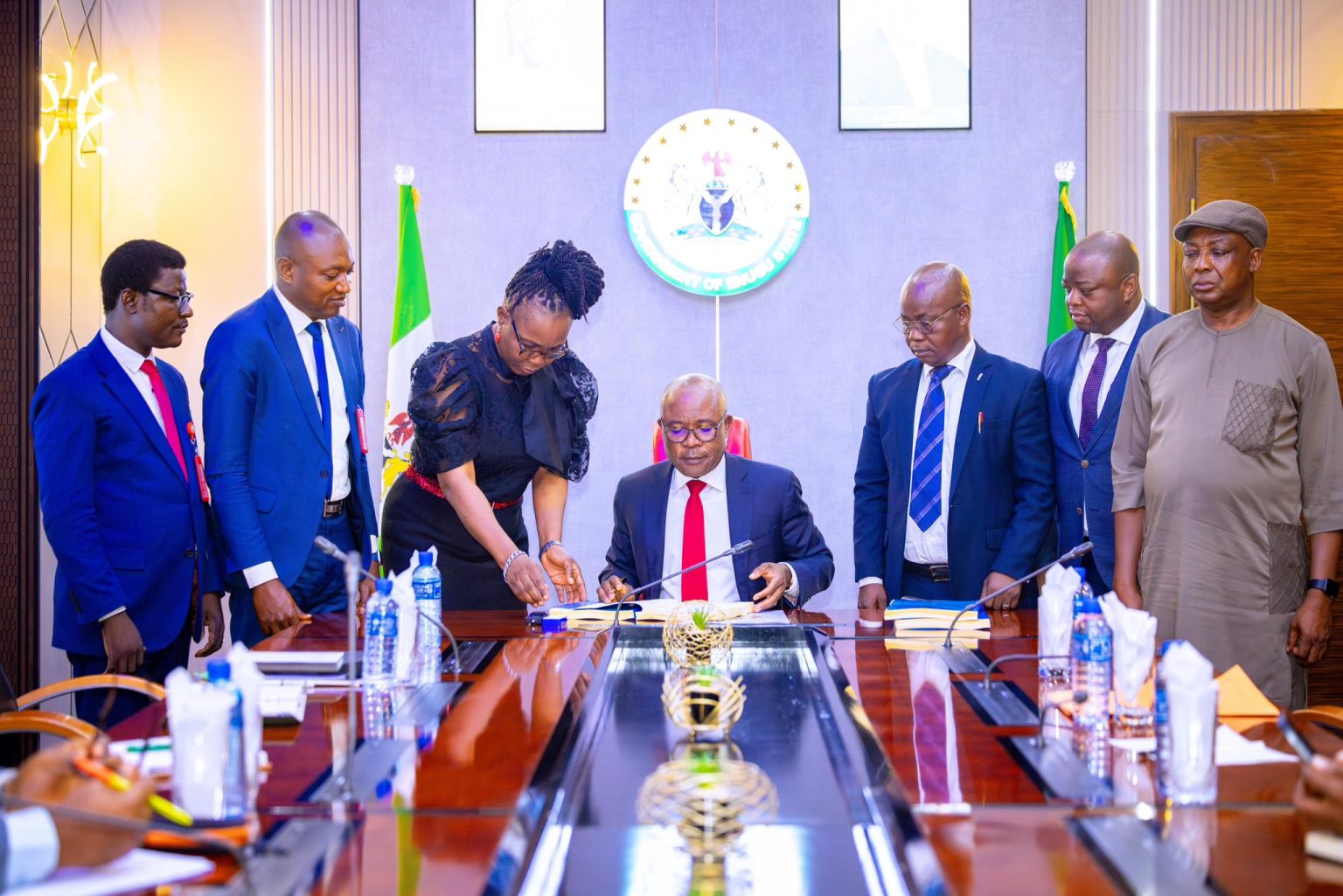Ben Ezechime, Enugu
Governor Peter Mbah on Tuesday signed into law, the bill to create a one-stop shop for tax collection and administration in Enugu State, thereby ending multiple taxation in the state.
While signing the law, the governor, also declared the Enugu State Internal Revenue Service (ESIRS) autonomous.
Speaking shortly after signing the bill entitled “the Enugu State Internal Revenue Service (Establishment and Consolidation of Revenue Administration) Law, 2025,” Mbah said the new legislation also makes the revenue collection agency autonomous and free of bureaucratic encumbrances.
He added that the state government had set an Internal Revenue Generation ( IGR) target of N500 billion for 2025.
He described the law as a milestone in his administration’s quest to enable the Ease of Doing Business and make the state the premier destination for investments.
“I recall several times that I have engaged the business community, the organised private sector, and the market women.
“They have always complained about multiple taxation. People coming from everywhere with different types of government receipts to ask them to pay tax. That will end from today.
“With the signing of this bill into law, we now have one revenue collection point, whether for the market women, the organised private sector, and the different agencies of government. You would have one clear point where to pay your tax and you will be issued with the appropriate receipt of payment.
“That means you no longer have any other person coming for the collection of tax.
“It is very important because one of the core indicators of the Ease of Doing Business is to make sure that you have the ease of payment of your taxes and you do not have multiple channels where you are being dragged to pay taxes.”
Governor Mbah said that the new law would effectively consolidate the revenues of the state and local governments, with each tier of government getting what is due to it at the end of the day such as is obtainable in land charges and Value Added Tax, VAT.
“The idea is that you have one point of collection, but the split is also done to the different tiers of government that this revenue is essentially due to.
“It is also important that we make this point very clear that this idea of the State Internal Revenue Service collecting on behalf of the other tiers of government is nothing new. As some of you already know, the Land Use Charge is paid to the local government, but collected by the state.
So, what we are doing now is essentially consolidate all the other revenue types to ensure that there is one point of collection. So, this is a major milestone and it would also help us have a full line of sight to all the revenues we have in the state,” he stated.
He further explained that the Enugu State Inland Revenue Service would henceforth become autonomous.
“The Enugu State Inland Revenue Service is now able to act as an autonomous institution of the state government. It also means that they can now set targets and try to meet those targets the same way you run a business.
“It means that they now have the powers to hire and fire their employees. So, we are increasingly making the Revenue Service a professional body,” he added.
Mbah further explained that contrary to some misinformation, the massive rise in the state’s IGR was inspired by widening the tax net, plugging revenue leakages, and deployment of technology, rather than increasing tax rate.
“Let me be clear, we have not increased any tax in Enugu State. What we have essentially done and which is impacting our revenue growth is expansion of the tax net. We have also made sure that monies that were collected in cash before now are now adequately captured and paid into the state coffers,” Mbah said.
He commended the Enugu State House of Assembly for their support every step of the way, noting with gratitude the expeditiousness with which they treat executive bills.
Earlier in his remark, the Speaker of the Enugu State House of Assembly, Hon. Uchenna Ugwu, described the bill as a turning point in revenue collection in the state.
“One, it is going to improve the Ease of Doing Business. It is also going to improve the IGR of the state and also block all the loopholes in revenue collection and administration. It is a very good gift to the people of Enugu State,” he said.


